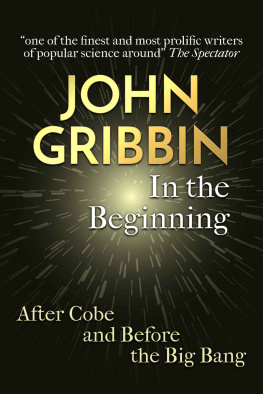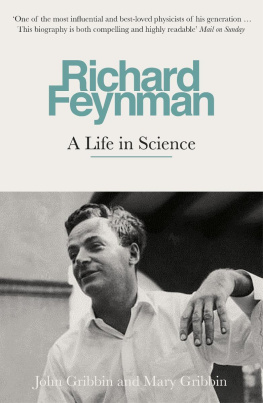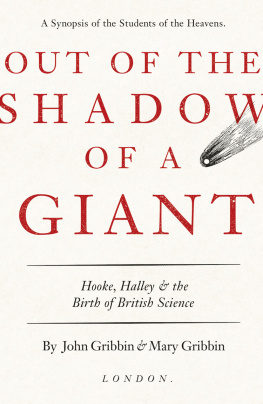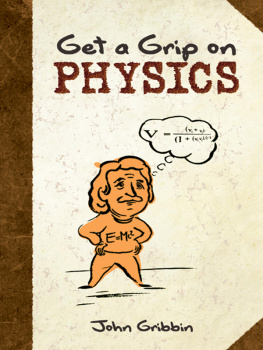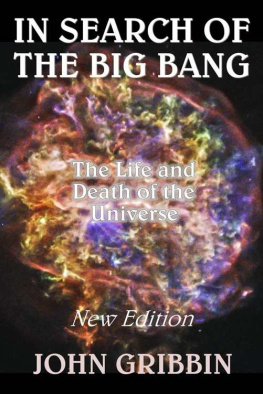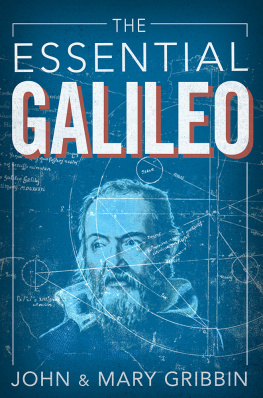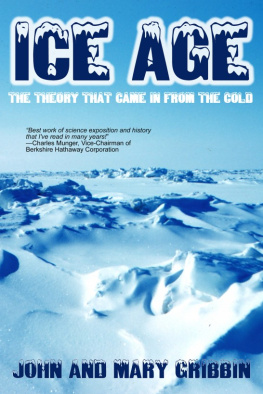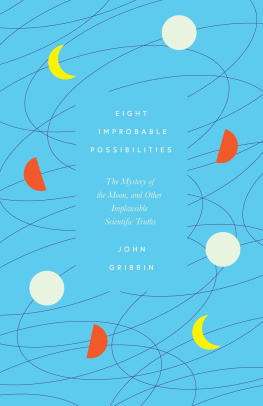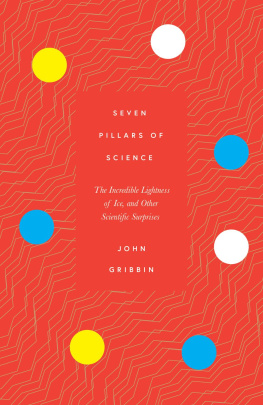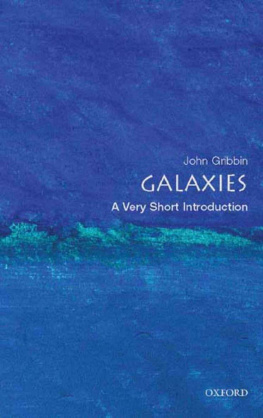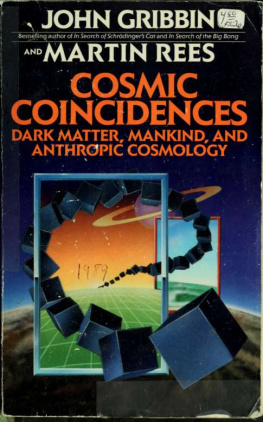The Reason Why
The Miracle of Life on Earth
JOHN GRIBBIN

ALLEN LANE
an imprint of
PENGUIN BOOKS
ALLEN LANE
Published by the Penguin Group
Penguin Books Ltd, 80 Strand, London WC2R 0RL , England
Penguin Group (USA) Inc., 375 Hudson Street, New York, New York 10014, USA
Penguin Group (Canada), 90 Eglinton Avenue East, Suite 700, Toronto, Ontario, Canada M4P 2Y3 (a division of Pearson Canada Inc.)
Penguin Ireland, 25 St Stephens Green, Dublin 2, Ireland (a division of Penguin Books Ltd)
Penguin Group (Australia), 250 Camberwell Road, Camberwell, Victoria 3124, Australia (a division of Pearson Australia Group Pty Ltd)
Penguin Books India Pvt Ltd, 11 Community Centre, Panchsheel Park, New Delhi 110 017, India
Penguin Group (NZ), 67 Apollo Drive, Auckland 0632, New Zealand (a division of Pearson New Zealand Ltd)
Penguin Books (South Africa) (Pty) Ltd, 24 Sturdee Avenue, Rosebank 2196, South Africa
Penguin Books Ltd, Registered Offices: 80 Strand, London WC2R 0RL , England
www.penguin.com
First published 2011
Copyright John and Mary Gribbin, 2011
The moral right of the author has been asserted
All rights reserved. Without limiting the rights under copyright reserved above, no part of this publication may be reproduced, stored in or introduced into a retrieval system, or transmitted, in any form or by any means (electronic, mechanical, photocopying, recording or otherwise) without the prior written permission of both the copyright owner and the above publisher of this book
ISBN : 9780141957852
It seems almost as if our Galaxy were a giant warehouse containing the spare parts needed for life.
James Lovelock, FRS
For Simon Goodwin,
who was generous enough not to write it first!
Acknowledgements
Thanks to Simon Goodwin, Douglas Lin, Charley Lineweaver, Jim Lovelock, Mac Low, Josep Trigo-Rodriguez and the Sussex University astronomers for discussions and advice on various aspects of this story. Sharing an office with Bernard Pagel in recent years gave me an opportunity to learn more than I realized at the time about the chemical composition of the stars and how it changes as time passes. As ever, Mary Gribbin played a key role in ensuring that my words are intelligible, and the Alfred C. Munger Foundation provided a contribution to our travel and other expenses.
Preface
The Only Intelligent Planet
Do we owe our existence to the impact of a supercomet with Venus 600 million years ago? A decade ago the idea might have seemed laughable. But now we know that there are icy objects the size of Pluto in orbits far out on the fringe of the Solar System, we know that Earths Moon was formed by the impact of an object the size of Mars with Earth, we know from chaos theory that no orbit around the Sun is stable, and, crucially, we know that something catastrophic happened to both Venus and Earth at the same time, just before the explosion of life on Earth that led to our existence. Coincidence? Maybe. But if so, it is the most significant in a chain of coincidences that led to the emergence of intelligent life on Earth. And that chain has so many weak links that it may mean that, for all the proliferation of stars and planets in the Universe, as an intelligent species we may be unique.
There are several hundred billion stars in our Milky Way Galaxy. At a conservative estimate, several billion of them are orbited by planets capable of supporting life. There may be more habitable planets in the Galaxy than there are people on planet Earth. But habitable does not mean inhabited. The thesis of this book is that intelligent civilization exists only on Earth. The reason is connected with the series of cosmic events that affected both Venus and Earth some 600 million years ago. But this is only part of the story, just one of the astronomical and geophysical reasons why the Earth is special, and probably unique.
Since the time of Copernicus, the progress of science has resulted in a steady displacement of the perceived place of human beings from centre stage in the Universe. By the end of the twentieth century, the received wisdom was that we are an ordinary kind of animal living on an ordinary planet orbiting an ordinary star in the backwoods of an unspectacular galaxy. But this image of the Earth and humankind as an insignificant unit in the Universe may be wrong. This book challenges that idea and suggests that human beings are special after all the unique products of an extraordinary set of circumstances that have as yet occurred nowhere else in the Galaxy, and possibly not in the entire Universe. An idea known as the Goldilocks Effect says that there is something odd about our entire Universe; but such speculations have no place in my argument; whether or not the Universe is unusual, there is something odd about theplace of the living Earth within the Universe.
The idea of Earth as a living planet, expressed most clearly by the concept of Gaia, has captured the imagination of a wide public and become respectable science. We are all used to the idea that our home in space is one interlocking system of life, and have become alerted to the very real prospect that human activities may be the death of Gaia. Such ideas are discussed in recent books from Jim Lovelock. The picture he paints is bad enough from the parochial perspective of life on Earth itself. But does one planet really matter among the immensity of the Cosmos?
The recent discovery of a planet only a few times heavier than the Earth in orbit around a nearby star, together with the discovery over the past few years of more than 200 Jupiter-like giant planets orbiting other stars, has fuelled interest in the possibility of finding intelligent life elsewhere in the Universe. Many people hope that the fact that there are other solar systems out there must mean that there are other earths and if there are other earths, surely there must be other people? This is a false argument. In the first place, it seems likely that Earth-like planets are rare. But even if other earths were common, my view is that while life itself may be common, the kind of intelligent, technological civilization that has emerged on Earth may be unique, at least in our Milky Way Galaxy.
I agree with Lovelock that other Gaias may be relatively common in the Cosmos. But I have reached the conclusion that our kind of intelligent life is so rare that it may be unique to our planet. At the present moment of cosmic time intelligent life exists only on Earth in the language of Gaia, Earth is the only intelligent planet, at least in our Galaxy.
Whether or not you see the hand of God in any of this, it would mean that we are the most technologically advanced civilization in the Universe, and the only witnesses with an understanding of the origin and nature of the Universe itself. If humankind and Gaia can survive the present crises, the whole of the Milky Way Galaxy may become our home. If not, the death of Gaia may be an event of literally universal significance.
I restrict the discussion to the Milky Way not only because it is our own astronomical backyard, an island in space beyond which we cannot hope to explore physically on any reasonable timescale, but because it is possible that the Universe beyond the Milky Way is infinite. In an infinite Universe, anything is possible, but anything interesting may only be happening infinitely far away from us. The Milky Way contains a few hundred billion stars, but almost certainly contains only one intelligent civilization. In that sense, our civilization is alone, and special. This book tells you why.


